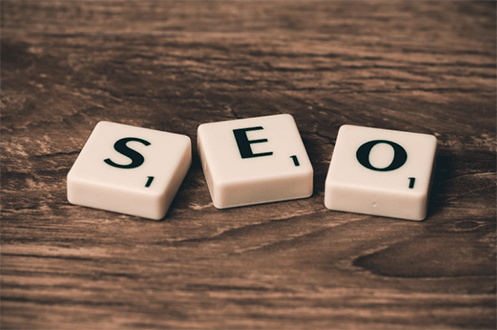Have you ever noticed how traditional search optimization can turn out sorely lacking in results when it comes to optimizing enterprise-level sites? Enterprise SEO Search engine optimization’s main goal is to make sure your website is built and run by the rules of search engines. Each page on your site needs to pass inspection because the more optimized your website is, the better the ranking it will get in the results pages.
Now imagine having hundreds and even thousands of pages that need to be optimized by more than hundreds of your company’s employees. The scope of work requires more than just a regular SEO fix, and this is where enterprise SEO comes into play.
Rising costs for paid advertising are not the only reason why websites opt for search optimization. Paid advertising can add temporary boosts to your traffic, but hard-earned organic traffic is an investment that goes a long way.
The Basics of Big Business SEO
Everyone can benefit from returning visitors, so SEO and ranking are not the only reasons website speed is so important. People use mobile devices more than ever, so if your company doesn’t have a responsive website yet, both your visitors and SEO are missing out. Optimizing for voice and image search improves your user experience and your ranking, too. Technologies like Google Lens can tell you a lot about the intent behind image search behavior.
Many argue that a good chunk of traffic optimization work for enterprise-level SEO happens thanks to the enterprise-level reach for off-site activities like user interactions on social media. It’s easier to do an SEO audit for small businesses, but enterprise search engine optimization demands more attention in on-site and off-site optimization.
Implementing enterprise search engine optimization is different from implementing other traditional optimization, not only in the scale of activities but also in the strategies involved.
A brand’s influence has a significant impact when deciding whether there is a need for traditional or enterprise search engine optimization. The number of employees in a company doesn’t always reflect the website size, and size certainly matters in enterprise SEO. Off-site SEO is just as important, but page volume directly dictates SEO attention demand.
Regular company websites typically consist of fewer pages and consequently less content than an enterprise web presence demands. Domain authorities can make or break the SEO success when trying to index a website in the top search results and it is usually easier to attain for larger websites, especially if they implement their subdomains correctly.
Larger websites can utilize more properties as their search engine optimization real-estate, and volume is often beneficial to domain authority. Keeping size in proportion, we have to bear in mind that with great power comes great responsibility. Big websites continually have to work towards immunity to algorithm updates.
Enterprise Sales and SEO
Enterprise selling and enterprise sales is a unique business-to-business (B2B) sales process, following a different rulebook with small-medium businesses (SMBs). Generally, SMBs in the start-up phase put a lot of effort into transactional sales, which are low risk and faster to close. SMBs tend to have higher performance than enterprise sales because of sales and marketing backing.
SEO can help enterprises promote their products and services better to their target B2B audience. By using the right keywords and relevant links, enterprise websites can rank high in search engine results pages (SERPs) and attract more visitors to engage with their brands.
Structuring automation to your advantage
Many companies start with a small static website and switch to using a CMS as their activities expand. Over time, the need for tools used to set up tags and metadata customization increases.
Scripting templates for an enterprise SEO website with thousands of pages is the norm, and automation is used by smaller websites, too. While automation can seem like a no-brainer, there are significant differences in automating SEO for small companies and enterprise-level SEO. Simple mistakes resulting from inappropriate scripting consequences are easier to fix on small websites. Errors in SEO automation on larger websites can cause downtime, penalties, and even undo all previous efforts.
Automation or semi-automation is an ongoing task, and no matter the success your templates have brought, you’re going to need to update them eventually. That’s why regardless of your marketing team size, enterprise SEO automation needs dedicated and ongoing management.
Site structure becomes more significant as branching out and merging are always on the horizon with big business. SEO and page templates can demand unpredictable changes. Since most large-scale companies use custom CMSs, a seemingly straightforward modification can produce unforeseen domino effects.
Content and link-building
Enterprise SEO should follow ethical link-building practices or white hat SEO because your target audience is like-minded people. Unethical SEO practices or black hat SEO can turn off search engines’ SEO algorithms and even website visitors who find content irrelevant or unhelpful. But what’s the difference between white hat and black hat SEO?
A black hat SEO involves keyword stuffing, page swapping, and adding unrelated words to content. On the other hand, white hat SEO is all about creating quality content, utilizing descriptive, keyword-rich meta tags, and making your website easy to use and fast-loading. For this to work efficiently and effectively, you can get white-label services for SEO/Digital marketing firms at https://linkflow.ai/homepage/white-label-link-building/ and other reputable companies.
Large-scale SEO may offer an advantage since a well-known brand has an easier time targeting branded keywords, making it more likely to increase conversion rates for transactional keywords. Competition for generic keywords can be much denser since they’re targeting less specific search queries. Keyword research is an entirely different beast of enterprise-level optimization. Long-tail keywords usually have less competition for small-scale businesses due to the volume, whereas enterprise SEO must focus on all competitive keywords.
Duplicates and similar content turn into a daily struggle for large websites. Whether it’s product descriptions or magazine articles, content must always be fresh and optimized with the appropriate tags. Scaling businesses need to pay special attention to developing tactics for combating keyword cannibalization.
The usual link-building strategies like manual outreach for external links won’t have the effect they do on smaller websites. Large-scale SEO must develop a more robust system for internal link-building to compensate for pages that won’t get boosted by external links. On the same note, authority backlinks become harder to get and hold more value. SEO marketing agencies like Sure Oak build high-quality links for ambitious companies in order to get clients the rankings they need. Take a look at their link building case studies to get an idea of what you can expect if you opt for these services.
Conclusion
In the end, given enough time for SERP’s updates, SEO analytics never lie about how well your current strategy is working every step of the way. We know good rankings take time and dedication, and your metrics will always point out where optimization is falling short. Even though the SEO backbone is the same for everyone, growing businesses always see good results going the extra mile. Whether you opt for new enterprise-level tools, new hires in the department, or a new strategy, results will always follow.



